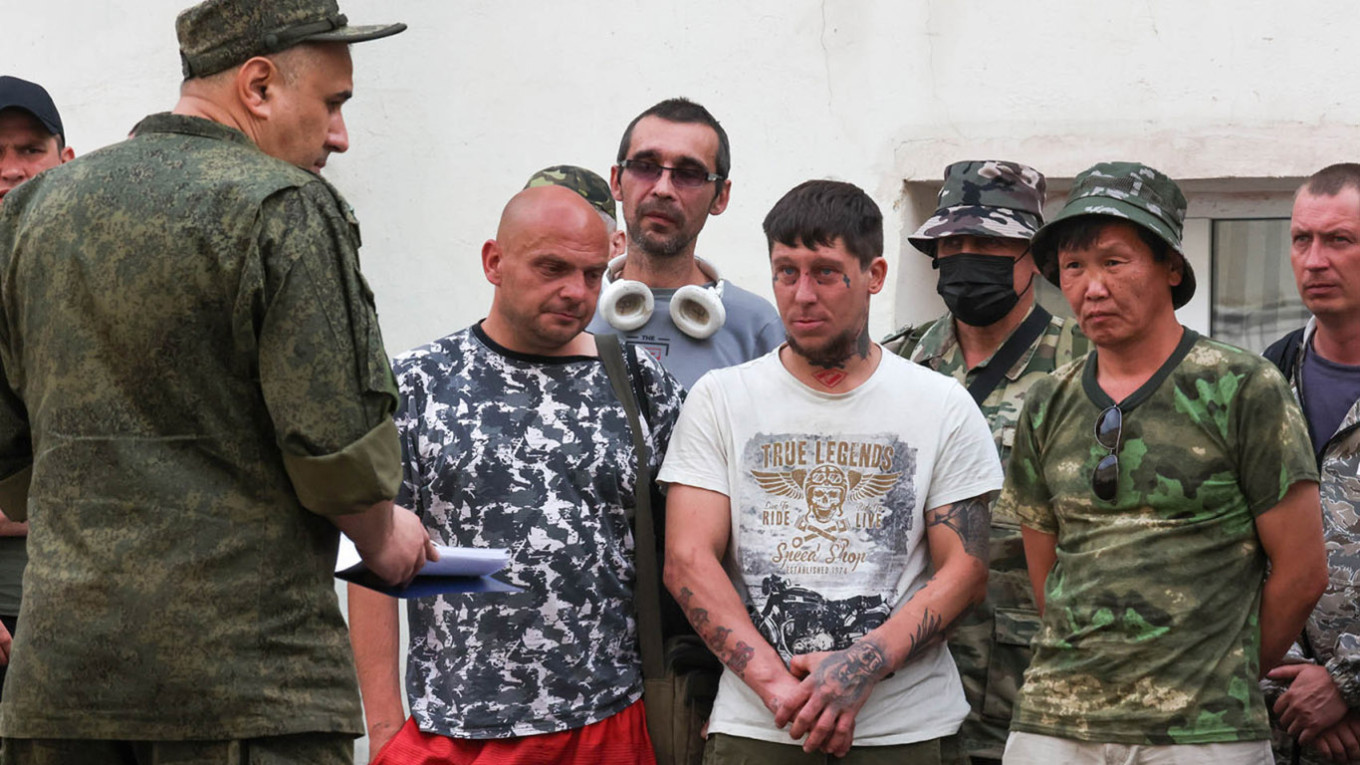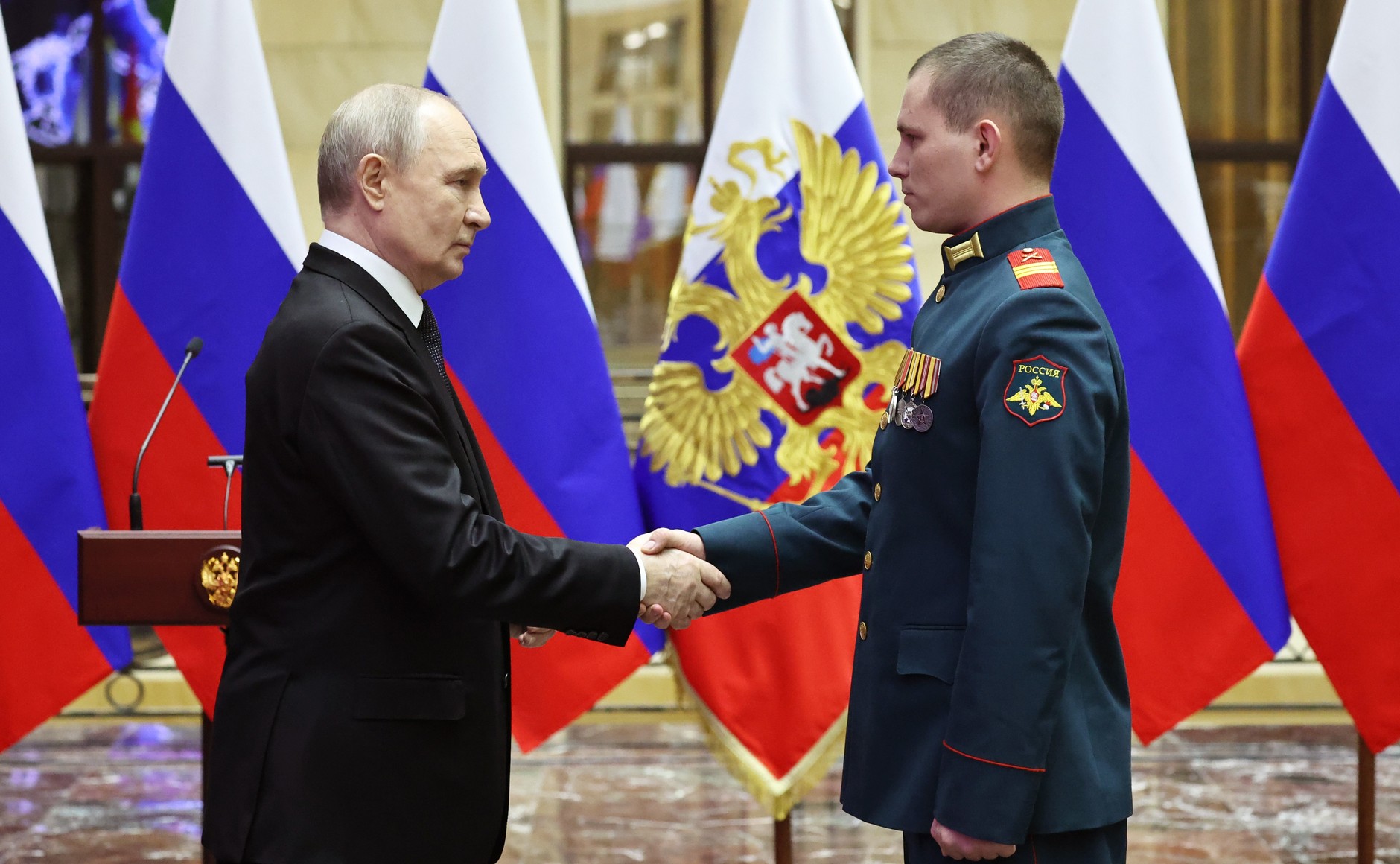
Moscow’s War Intensifies Corruption in Russia
Moscow’s War Intensifies Corruption in Russia
Executive Summary:
- New corruption schemes are being developed to power Russia’s war machine and incentivize Russian citizens to fight in Ukraine through monetary support and the elimination of criminal liability.
- A powerful money-laundering network connected to military-patriotic organizations is conducting collections “for the needs of the front,” but independent journalists have found little evidence of the money helping those it claims to benefit.
- Corruption bolsters Russian officials’ loyalty to the system because it allows for personal gain in their careers. Corruption prevents the Russian Army from fighting effectively, however, further hindering Russia’s war efforts.
Russia’s war in Ukraine has put a spotlight on corruption in the Russian Federation, which has existed as long as the country itself. As Russian President Vladimir Putin continues to try to fight the long war, corruption will increase and continue to be the only way the Kremlin believes it can control its people. A year and a half into the conflict, Putin declared that the so-called “special operation” would “purify” Russian society from a “fifth column” (ВВС–Russian service, November 28, 2023). Putin’s words were then repeated by Foreign Minister Sergei Lavrov, who said one result of the war is “the cleansing of Russian society of people who feel no connection with Russian culture” (Kommersant.ru, January 18).
Consequently, on September 23, the Russian government prepared a review of a draft law about the criminal liability of “Russophobia” in Russia’s Criminal Code. The bill was prepared by State Duma Vice Speaker, Irina Yarova, and the head of the State Duma Committee on Security and, ironically, Anti-Corruption, Vasily Piskarev. The law outlines the liability specifically for discriminatory acts committed against citizens and permanent residents of Russia, including against “compatriots” who are not citizens of the Russian Federation “outside the borders of the Russian Federation.” Punishment for “Russophobia” within Russia, however, is not outlined (Interfax; Svoboda.org, September 23).
Based on the Kremlin’s asseverations on the purpose of the “special military operation,” Orthodox preachers have constructed an entire religious concept according to which being prepared to kill and die on the battlefield in Ukraine is the genuine fate of the “holy” Russian people. Therefore, they must spill blood to renew themselves in the eyes of God (YouTube, October 2, 2022). The priests assert that thanks to the war, “we learn to love again, understand one another, and help each other” (Мccvu.ru, October 14, 2022).
The war, however, is corrupting Russian society on an unprecedented scale. This corruption refers not only to eliminating punishments for illegal conduct, but also to the creation of a plethora of new corruption schemes. Corruption was already the foundation of the Putin regime (Deutsche Welle–Russian service, March 7, 2023). Now, however, the object of corruption is not money, but human life. The entire system of supplying Putin’s war is built on the financial benefit of underprivileged people. The Ministry of Defense offering record-breaking signing bonuses (by Russian standards) is one way in which the Kremlin is coercing people into serving (The Moscow Times, August 1). Beyond recruitment, every stage of the Russian military machine’s operations, even those not directly connected with the front, creates its own model for enrichment or expands existing ones.
On September 25, Russia’s State Duma adopted amendments to the Russian Criminal Code and Criminal Procedure Code. These exempt criminal liability for defendants through serving in the Russian Armed Forces in Ukraine. The law additionally applies to those already convicted of crimes whose convictions have not come into legal force (RIA Novosti, September 25). Now, it is possible for anyone at any stage of the criminal process to go to the front, from the moment of arrest to being sent to a penal colony (Novaya Gazeta–Evropa, September 30).
Independent journalists have already discovered that in several Russian regions, police officers are promised 10 thousand rubles ($100) for each detainee who signs a contract with the Ministry of Defense (Т.me/bazabazon, August 21). Even in regions with no such awards, the operational staff benefits directly from recruiting suspects and defendants to the front. As police officers admit, the necessary condition for a detainee to be sent to the front is an admission of guilt. The more people who agree to go to Ukraine, the better crime detection statistics become for these police forces. For certain police officers, this means bonuses and undeserved promotions (Novaya Gazeta, September 30). Now, Russia plans to take 40 percent of defendants directly to war from pre-trial detention centers, equating to about 20 thousand people (Istories.media, October 1).
The situation with migrant workers in Russia is similar. Five anti-immigrant bills were introduced recently in the State Duma, according to which immigrants’ illegal presence in Russia will become an aggravating factor in committing crimes, and punishment for document forgery and assisting illegal immigrants will be toughened (RBC, October 2). These legal innovations—effectively categorizing immigrants as criminals—will make recruiting them for war much easier. Conversely, as noted by Alisher Ilkhamov, director of the analytical center Central Asia Due Diligence, the emergence of new barriers and restrictions against immigrants leads to more underground operations to help labor migrants bypass these obstacles. Human rights activist Valentina Chupik said the bills would “simply increase bribes” (Novaya Gazeta–Evropa, October 2).
A separate powerful money-laundering network connected to the creation of military-patriotic organizations is conducting collections “for the needs of the front.” Independent journalists discovered that in 2023, more than a thousand new military-patriotic organizations were registered in Russia—twice the number in 2021. The trend has continued in 2024. Deputies, officials, and members of political parties often run the new organizations. Funds associated with the government account for 80 percent of all cash receipts. For example, the collection of donations for residents of Kursk oblast was conducted by the government through the Kursk Oblast Development Fund to help victims of attacks by the Ukrainian Armed Forces. The fund does not have a website, and Novaya Gazeta-Europe was unable to find any reports on its activities. Data on victims’ actual receipt of funds also could not be found (Novaya Gazeta–Evropa, October 3).
Non-governmental organizations (NGOs) of this kind collect funds for the army’s needs, for aid to military families and returning wounded soldiers, and for the patriotic education of children and youth. At least 499 organizations are headed by government functionaries, which facilitates the use of government resources to collect the funds. Some foundations even mimic government structures, but tracking how the money is spent is impossible. All this creates enormous potential for corruption. For example, the well-known fund “Defenders of the Fatherland” collected 2.6 billion rubles ($27 million) in 2023. Of this, only 11 percent went to targeted expenses, and 77 percent was spent on maintaining the administrative apparatus (Novaya Gazeta–Evropa, October 3).
There is some evidence that the scale of corruption is backfiring on Russia. As residents of Kursk oblast discovered recently, the construction of fortifications was meant to begin in the border areas in the Fall of 2022, for which 12 billion rubles ($120 million) were allocated. According to documentation, many construction contracts were concluded, but residents never saw any real work (Novaya Gazeta–Evropa, September 5). This enabled Ukrainian forces to swiftly capture swathes of territory in the region.
Corruption continues to ensure the functioning of the Russian military machine, creating additional incentives for its participants at every level to get involved in serving in the war. At the same time, it does not allow this machine to become truly effective. Ultimately, it is often ordinary Russians who pay the price of its inefficiency. As the war continues and the Kremlin relies more and more on corruption, discontent will rise among Russian citizens, increasing unrest across the Russian Federation.


